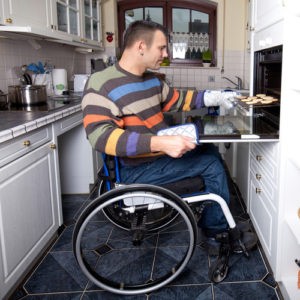Your relationship, and the time you spend with them, means you have a real understanding of what makes them tick. You’ll know what they’re good at and what they find hard; what they enjoy and what motivates them.
That makes your views invaluable when it comes to understanding their needs and getting the support right. Alongside your child or young person’s views, what you think should form the basis of your child’s support in nursery, school or college.
The information below can help you to understand how best to record your views and the information that’s most useful to share with others.

![]() Your views are important because you know your child best. You can help other people understand their strengths, difficulties and needs. You can say what life is like outside of school or college – at home, in your family life and in your child’s social life and relationships.
Your views are important because you know your child best. You can help other people understand their strengths, difficulties and needs. You can say what life is like outside of school or college – at home, in your family life and in your child’s social life and relationships.
Alongside your child, you can give a view of their life. This means that those who don’t know them as well as you can see who they are as a person and not just as a pupil or student. You can be their advocate, which means you can help them to get their voice heard and express their views.
The law around special educational needs and disability is clear that what you have to say is important. It says:
“The most important people in any child or young person’s life are their parents. You know your children best of all. What you as parents think, feel and say is important. You should be listened to and you need to be fully involved in decisions that affect your children.”
It goes on to say that when making decisions about special educational needs or disabilities, your local authority must:
• have regard to the views, wishes and feelings of children, their parents and young people
• make sure that children, their parents and young people participate as fully as possible in decisions that affect them
There are lots of opportunities for you to get your views into the decisions made about your child’s education and support. Your views are important at all times, but especially when
Shared decision-making

Being able to say what you think and feel is part of having a good relationship with your child’s school or college. It’s an important part of shared decision-making. This is where you and the professionals that support your child both have your own expertise to bring to discussions. You make decisions together along with your child. You won’t always agree, but being able to talk openly, honestly and positively can help you work things out if they aren’t going so well.
Pre and post 16
Your views should be a constant voice throughout your child’s time in pre-school and school. When your young person reaches 16, the decision-making rights pass to them, as long as they’re able to make decisions. But you can be there to support them and your views are still likely to be important. If your young person can’t make decisions about their education and support, you’ll continue to be their voice and guide them.
What you need to share will depend on what you’re giving your views for.
So, if you’re sharing your views at a regular school meeting you could spend a bit of time looking through your child’s plan and write a short list of the main things you want to share. You could start with what you think is going well then write down any concerns you have. Then add anything you think may need to change. If you have questions, jot these down too. Some parents use meetings form before and during the meeting to help them do this. You can download a copy of our meetings form for parents (Word 45KB).
If you’re giving your views for any of the following, you’ll need to take more time to think about what you want to share and give more information than you would at a school meeting.
Answer these key questions:
Write a brief list of the “headline” issues that affect your child. You can use the headings in the section below, or you can use your own. For each area, focus on what your child is good at (strengths and skills) and what they find hard (difficulties or challenges). Think about what support they already have and whether that works.
Keep a daily diary for your child. Write down what they’ve managed to do for themselves, any progress you can see that they’ve made and what has made them happy. Keep a note of what they need help with and how you support them. If you have a home and school communication book you could use that too to see what kind of issues affect them every day.
It can sometimes help to write a few short paragraphs that say a bit about your child and their ‘story’ so far. You could talk about:
You can give your views in whatever way works best for you – you can write a few lines, talk to someone about your child or write something with more detail. What’s important is that you share your views in some way and that you keep sharing them.
Some parents find it helpful to have some headings to get them started though. You could think about the different areas of special educational need.
Think about and include the types of behaviour you see, and how that affects your child at home and at school.
You could also think about and comment on how independent your child is and how able they are to do things for themselves.
 Self-care and independence
Self-care and independence
All the way through your child’s education, you and the people that support your child will be encouraging them to become more independent. This means learning to do as much as they can for themselves, developing life skills and applying what they learn to their day-to-day life.
We all naturally want to help someone who looks like they’re struggling, so it can be easy for the adults that support a child or young person to get into the habit of doing everything for them. So, writing down what your child can do for themselves and how they could develop these skills is a good idea.
You could include things like:
Health issues
Include any health issue that could affect your child’s learning and their ability to be in school. This could include things like:
That depends on what you’re giving your views for, but a general rule is to try and be as concise as you can – try not to waffle!
If you’re sharing your views at a regular review meeting, think about what’s changed since you last met and focus on that. Keep it brief and to the point and mainly stick to the things that affect school and learning. You could write yourself a list of bullet points before the meeting so that you remember what to say. Some parents fill in a form before and during a meeting, which helps them to focus and make sure that action is agreed.
If you’re sharing your views in writing for the first time or for something that doesn’t happen often, such as an EHC needs assessment, you’re going to need to say more.
If your child’s story is a long and complicated one, it can be very easy (and tempting) to write lots and sometimes parents share many pages of information about their child. If you have a lot to share that’s fine, but it can be helpful to also write a short summary or a few main bullet points too. Summing up the main points helps professionals and people who don’t know your child to get a picture of them quickly and easily.
 If English isn’t your first language and you’re not confident that what you say will be properly understood by other people, you could ask:
If English isn’t your first language and you’re not confident that what you say will be properly understood by other people, you could ask:
If you’re not comfortable writing, you could:
Whenever you’re sharing your views, it’s really important to start by talking about your child’s strengths, skills and talents. Support that works well is going to build on the things your child can do well and succeed at. Then talk about your child’s difficulties and what’s challenging.
It can be a good idea to include your hopes, dreams and aspirations for your child too. Parents are encouraged by the Department for Education to be ambitious for their child and that means thinking about what’s possible and not just about what might be available.
When you say what your child’s needs are, add a few examples of how these might show themselves at home and in school or college. For example, your child might have difficulty with relationships with other people. That might show itself as lack of eye contact and not wanting physical contact at home. At school it may show as being isolated, playing alone and not being able to make friends. You could say how you manage this at home and how well that works.
You might see a behaviour in your child that you aren’t sure about – you don’t know what’s behind it or causing it or it may not make sense to you. If this happens, talk about the behaviour and your thoughts about it. This can be a sign of an ‘unclear need’ and it may need to be explored further. That could mean talking more to the people that support your child, having an assessment for your child or getting a specialist involved.
Whenever you give your views, it’s worth thinking ‘long-term’. Even from early years, the support you child gets should challenge them to become as independent as possible. This means thinking about how to help them take small regular steps towards developing the skills they’ll need for adult life.
Your views should be listened to alongside your child’s and those of any professionals. They’re equally important.
If you’ve given your views as part of an EHC needs assessment they should be recorded in the paperwork. In a final EHC plan, parent or carers views go in the first part of the plan – section A. If you give your views as part of an assessment for your child these should be recorded and set out in the final report, though they’re likely to be in the form of a summary. In meetings, your views should be summarised and recorded in the meeting notes or minutes.
 In reality, how much parent views are listened to and acted on varies. Some professionals and schools have equal partnership relationships with parents and carers. This is where both sets of views are seen as important and parents have a key role to play in shaping support and identifying needs. Other parents find their experience is very different and it can sometimes feel as if you’re talking and no one is listening.
In reality, how much parent views are listened to and acted on varies. Some professionals and schools have equal partnership relationships with parents and carers. This is where both sets of views are seen as important and parents have a key role to play in shaping support and identifying needs. Other parents find their experience is very different and it can sometimes feel as if you’re talking and no one is listening.
The bottom line is that the law is clear that what you have to say is important and you should be involved in the decisions made about your child. It’s in your child’s best interests for parents and professionals to work together to get the best outcomes. If you feel that your views aren’t being listened to or taken into account:
If none of this seems to be working, you can contact the head teacher or principal about your concerns, or the governor with responsibility for SEND. If the issue isn’t resolved after that then you can make a formal complaint to the school or college, following their complaints’ procedure. If that doesn’t resolve your complaint, then the next stage would be to contact the Department for Education and/or Ofsted. You can find out more about that on the IPSEA website.
If you’re finding it hard to get your views heard, or if your relationships with professionals have become strained or difficult, DiAS can give also you advice and support too. Contact us if you need support.
Page reviewed: April 2024
Page due for review: April 2026
DiAS (Devon, Information, Advice and Support) supports children and young people aged 0-25 with special educational needs and disabilities (SEND), and their parents and carers.
Helpful links
Contact us
Legal
© 2025 Devon Information Advice & Support
Searching...